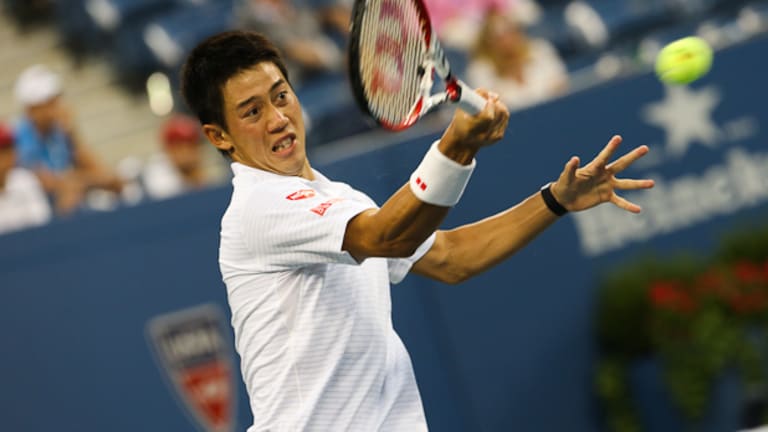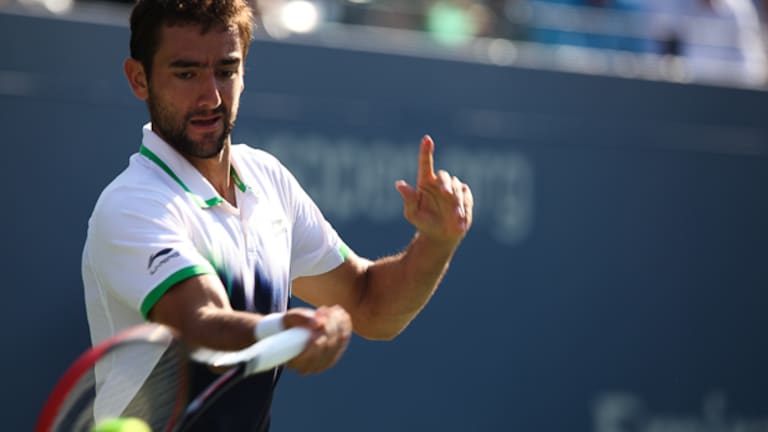NEW YORK—The 2014 U.S. Open men’s final will be the battle of the bracket busters. If you predicted that Kei Nishikori and Marin Cilic would be the two guys still standing on the tournament’s 15th day, you’re a better forecaster than I am. Like a lot of others, I thought the two men they beat in the semis, Novak Djokovic and Roger Federer, would be playing in the title match. It seemed like a good bet. They had faced each other on the last day at Wimbledon two months ago, and it has been nine years since a Grand Slam final didn’t feature at least one member of the Big 4.
When Marat Safin beat Lleyton Hewitt in the final of the 2005 Australian Open, Cilic and Nishikori were 16 and 15 years old, respectively. But there’s no question they deserve to be where they are today. Cilic, who will be 26 at the end of September, routed Federer, while the 24-year-old Nishikori beat Djokovic at his own hard-nosed baseline game. There will be plenty of time after the tournament to debate whether this spells doom for the Big 4. For now, I’ll just say that I agree with what Federer said yesterday: He noted that when Stan Wawrinka won the Australian Open this year, lots of us speculated about the decline of the Big 4, but things quickly went back to normal in the French Open and Wimbledon finals. In other words, the U.S. Open is just one tournament, and it's a tournament that world No. 2 Rafael Nadal didn’t even play.
Does the fact that no marquee names will be in Arthur Ashe Stadium on Monday detract from this final in any way? It probably won’t be a banner U.S. Open swan song, ratings-wise, for CBS in the States. But for me, this is a final to savor. It’s not as if tennis fans haven’t seen their share of Big 4 match-ups over the years—collectively, they’ve played 172 matches against each other. Cilic and Nishikori have played seven times, and even the hardest-core tennis fan probably hasn’t seen more than a couple of those. These also happen to be two of the nicest guys in the game, each of whom has paid his dues, suffered his share of disappointments, and seemed destined at times not to live up the considerable expectations that were heaped on them when they were younger.

